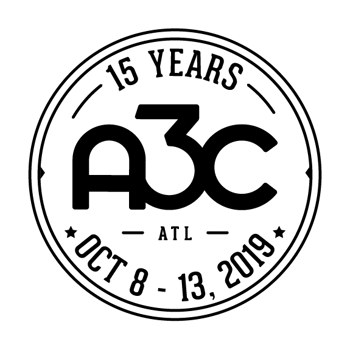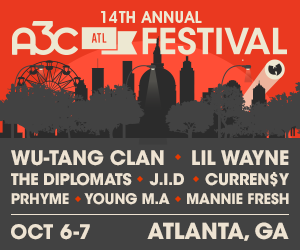
The city of Atlanta has a long and interesting history. Looking at the city now with its skyscrapers, busy streets and it’s electric, but comforting atmosphere, you would not guess that it was once almost burned down into oblivion in 1864. Since its rise from the ashes, Atlanta has become a stapled location for the civil rights movement in the 60s. In the 80s, mayor Andrew Young declared Atlanta to be an international city, but it wasn’t until the 90s when the world and the International Olympic Committee made that declaration a fact. In 1990, it was announced that Atlanta would be the host for the 1996 Centennial Olympic Games, beating the original home of the Olympics, Athens, Greece. Like all cities that win an Olympic host bid, they have time to make the city look good and meet all the requirements needed to host an event of this magnitude. Needless to say, Atlanta looked a lot different before 1996.
Before the ‘96 Olympics, Atlanta citizens were worried about the image of the cities past affecting global perception. The confederate soldiers carved in Stone Mountain and the reemergence of the KKK in the same place was something of concern, as some Olympic events were held there. Thankfully the Martin Luther King Jr. Historic Site District and the Carter Presidential Center were able to draw visitors away from Atlanta’s shady past. To keep most of the focus of the Olympics in the downtown area, Centennial Olympic Park was created as a gathering point.
Along with the park, other facilities like Forbes Arena (at Morehouse) and Centennial Olympic Stadium (now Turner Field) have shaped the city’s landscape tremendously. The Olympics had a significant impact on the surrounding colleges and universities. The football field at Clark Atlanta University, as well as the New Residential Apartments (now the new Brawley Hall) were also constructed for the Olympics and left in the care of the institution to be used by the students. Georgia State University also received housing quarters that were originally used by the Olympic athletes. Georgia Tech received an Olympics' Aquatic Center, which is now used as their recreation center. All of these facilities are still in use today and have some type of homage to the ‘96 Olympics. Other structures and sculptures were created in honor of the Olympics. The Flair Monument was erected next to the Georgia World Congress Center to honor all of the athletes. The Atlanta Olympic Torch Tower is one of the most visible and memorable tributes to the ‘96 Olympics. The tower can still be seen when riding along I-85.
Besides physical infrastructure Atlanta’s population change dramatically after the ‘96 Olympics. In the early 1970s, the Atlanta Population reached about 2 million residents. By 1996, Atlanta claimed 3 million residents. After the games, the population immediately swelled to 4,458,253. The Olympic games put Atlanta on the world’s radar and the international airport allowed people from all over to easily access the city. Due to the Olympics, Atlanta became more diverse and culturally appealing.
Economically, Atlanta prevailed as one of the best cities to host the Olympics. The expected cost of the ‘96 Olympics was $1.8 billion. $500 million of tax money was used to build the new facilities, road improvements, Centennial Olympic Park, airport expansion and improvements to public transportation. To pay for the actual games, Atlanta relied on sponsorships and ticket sales, resulting in a $10 million profit. Other countries criticized Atlanta for commercializing the Olympics by allowing major corporations like Coca-Cola, General Motors, Toshiba, Samsung Electronics and more to plaster their brands all over the Olympic games.
The ‘96 Olympics was a turning point in the history of Atlanta. Since then many people move to Atlanta looking for a fresh start. Businesses continue to spring up in a city that continues to progress. The ‘96 Olympics was a crucial year for the International Olympic Committee and the city of Atlanta came up big as the proper host. Since then, Atlanta has never looked back, but traces of its Olympic history can be found everywhere.



